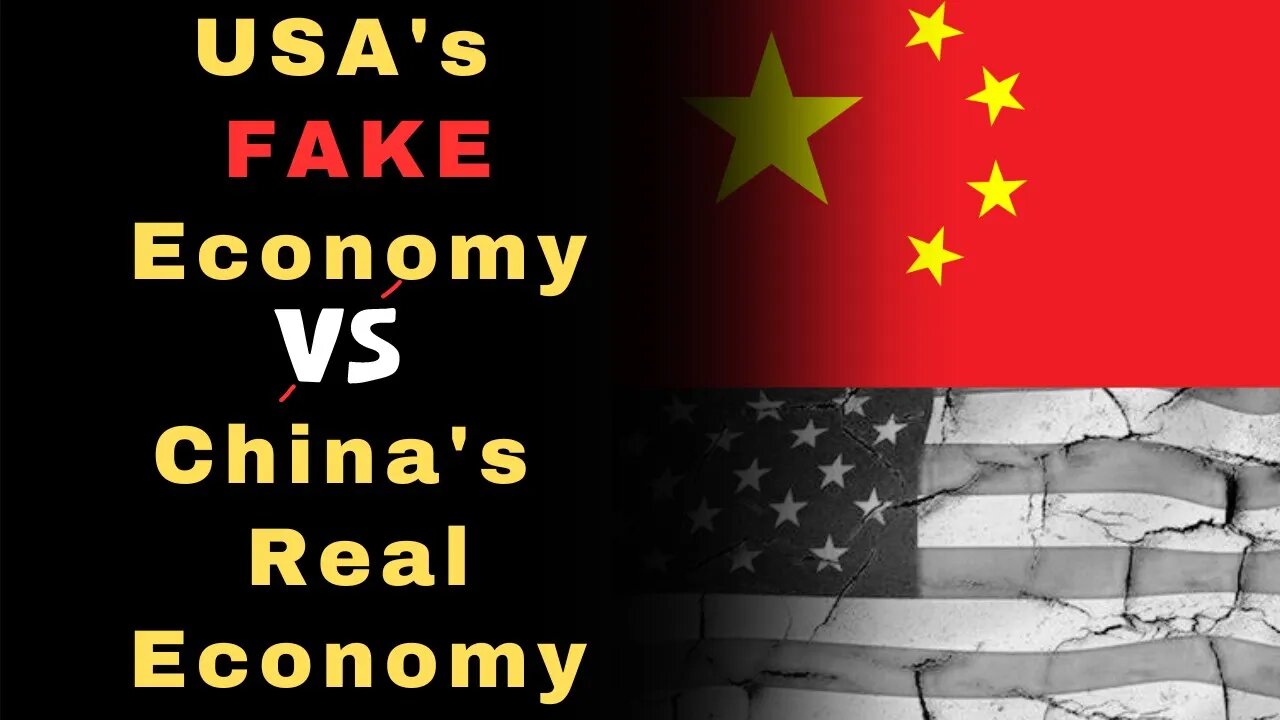Premium Only Content

How The Rise of China's Tangible Goods Economy Spells DOOM for the West
Welcome to The Joe Ligato Show! In today's episode, we dive deep into China's transition from low-tech manufacturing to Automation and the integration of AI, exploring how this shift has impacted its Global competitiveness. I'm Dr. Joe Ligato, your host, and together, we'll unpack the fascinating details.
China's economic transformation can be understood through the lens of different types of economies. We identify three primary types: resource-based, manufacturing-based, and service-based. The resource-based economy, exemplified by countries like Russia, relies on the extraction of resources from their land. On the other hand, China emerged as a manufacturing-based economy, initially focusing on low-tech manufacturing. This phase involved labor-intensive processes and the production of tangible goods, leading to its reputation as a manufacturing powerhouse.
However, China didn't stop there. Recognizing the need to evolve, they transitioned to high-tech manufacturing, incorporating advanced technology and automation into their production processes. The world began to realize that China was capable of producing not only cheap trinkets but also high-quality, sophisticated goods. This shift occurred around the late 2010s, with China solidifying its position as a leader in high-tech manufacturing.
Moreover, China's current focus is on automation and AI. They understand the importance of automation in maintaining productivity and competitiveness, especially considering their declining working-age population and concerns over sustainability. By embracing automation and AI, China aims to continue producing tangible goods efficiently while reducing their dependence on a large workforce.
In contrast, the West has been more inclined toward intangible goods and service economies. The United States, for example, transitioned from high-tech manufacturing to becoming a service-based economy. While service-based economies can be successful if people value the services provided, they also require a country to produce tangible goods or have a trusted partner to meet those needs. However, the United States currently faces challenges in this aspect, particularly due to strained relations with China, a country that excels in tangible goods production.
As we explore China's transition to AI and automation, it's important to understand the dynamics between resource-based, manufacturing-based, and service-based economies. China's strategic moves, such as leveraging its manufacturing capabilities and forging partnerships with resource-rich countries like Russia, have played a pivotal role in their economic growth.
Join me, Dr. Joe Ligato, on this captivating journey as we delve into the intricacies of China's economic transformation. Don't miss out on the insights, revelations, and future implications discussed in this episode of The Joe Ligato Show!
#TheJoeLigatoShow #ChinaEconomy #Automation #AI #Manufacturing #HighTech #GlobalCompetitiveness #ServiceEconomy #ResourceBasedEconomy #TangibleGoods #IntangibleGoods #EconomicTransformation #Geopolitics #EmergingMarkets #Sustainability
-
 1:00:37
1:00:37
Bright Insight
10 days agoOlmec Heads are Evidence of Lost Ancient Advanced Civilization
116K227 -
 13:43
13:43
Cooking with Gruel
2 days agoCreamy Saffron Risotto
92.9K20 -
 18:38
18:38
DeVory Darkins
1 day ago $22.39 earnedTrump Makes HUGE Announcement that may spark GOP Battle
63.5K76 -
 2:13:05
2:13:05
The Nerd Realm
11 hours ago $3.52 earnedNew Years Eve! Fortnite Hunters w/ YOU! Creator Code: NERDREALM
54.1K3 -
 11:04:44
11:04:44
FusedAegisTV
1 day agoNYE Eve! - 2025 Incoming 🎉 - 12hr Variety Stream!
114K6 -
 1:18:52
1:18:52
Awaken With JP
14 hours agoSomehow The World DIDN’T End This Year! - LIES Ep 72
154K77 -
 1:19:34
1:19:34
Michael Franzese
12 hours agoWhat 2024 Taught Us About the Future?
124K32 -
 1:48:09
1:48:09
The Quartering
13 hours agoBird Flu PANIC, Sam Hyde DESTROYS Elon Musk & Patrick Bet David & Woke Witcher?
131K74 -
 4:47
4:47
SLS - Street League Skateboarding
3 days agoLiz Akama’s 2nd Place Finish at SLS Tokyo 2024 | Best Tricks
56.6K5 -
 4:06:54
4:06:54
LumpyPotatoX2
11 hours agoHappy New Year Rumble ! - #RumbleGaming
40.8K